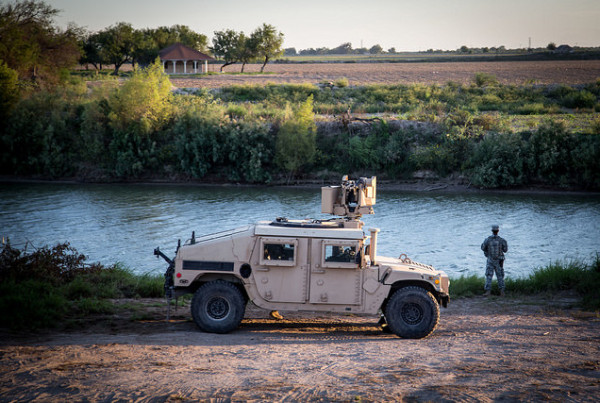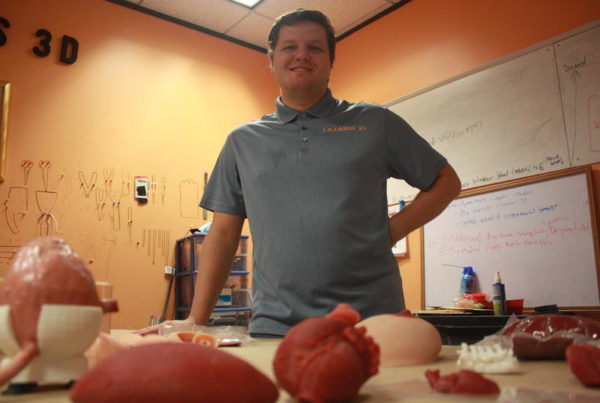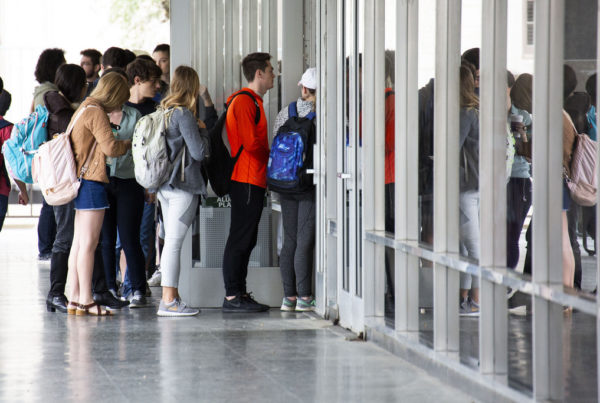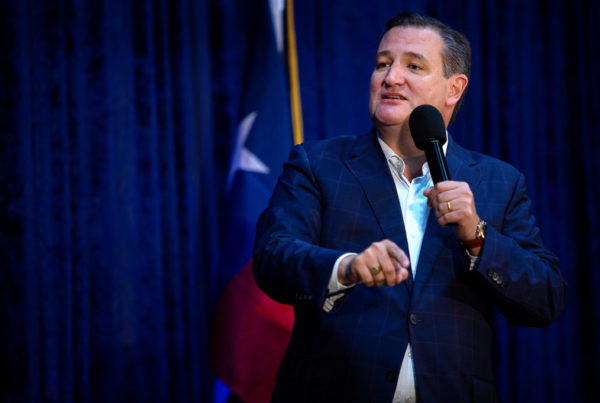Congressional District 23 is one of the largest in the country: it takes 8 hours to drive across it, from San Antonio almost to El Paso. It is also, arguably, the site of the most hotly contested race in Texas this political season – Democrat Gina Ortiz Jones is challenging Republican incumbent Congressman Will Hurd.
Thursday, we heard about the size and demographics of District 23 from reporters based in Marfa and San Antonio. Today, those same reporters – Carlos Morales and Ryan Poppe dig into the issues.
Let’s start with a topic that everybody seems concerned about: health care. That’s certainly the case in northern Bexar County; it’s the most affluent section of the district. That’s where Janet Olgethrope is sipping an artisan brew at her favorite coffee shop. Her main worry is that the Affordable Care Act will be dismantled or replaced with a plan that brings the country back to the days before the ACA.
“At my first colonoscopy about ten years ago, they found a polyp about the size of a freckle, removed it, but that gave me a preexisting condition. It meant that, and it was spelled out on our policy, that I would not be covered for colon cancer,” Olgethrope says.
On the other side of the district, down in Presidio, near the Big Bend region, the issue is the same. Reynalda Carrasco Garcia just wants better medical services.
“Que haya doctores, que haya hospitales grandes. Mucha gente va a diferentes partes, a Odessa, a los hospitales grandes, verdard,” – Carrasco Garcia, who’s 86, says a lot of people in this part of Texas have to travel to cities hours away to get to a hospital.
“Y luego por las personas mayores por mi es mas facil, irme a Chihuahua” – Carrasco Garcia says sometimes it’s just easier to go to Mexico.
Back in San Antonio, there’s Vietnam War veteran Jose Arzola who’s eating at a Jim’s restaurant. He says access to veterans’ health care benefits is good, but getting the VA to declare a service-related medical condition as a disability is tough.
“For example, I’ve been going back and forth with the VA since, well, I retired from the Navy in 1999, so … since 2000 or 2001 I’ve been trying to get my disability services connected,” Arzola says.
Arzola is worried about his own care, of course but what also concerns him is whether his family will get the benefits if he dies from one of those conditions.
Dennis Yancy is another military veteran who is attending a rally for Republican Will Hurd in Alpine. Yancy is most concerned about immigration and border security.
“I’ve lived in countries where I understand – I understand why they want to come here. But financially, we can’t afford it no more, and I hate to say that but that’s just the bottom line,” Yancy says.
Yancy says his views about the border were shaped by his years in the Army.
“We got to be able to, to control who’s in our country. If we don’t know who the bad guys are, you can’t defend against it. And sooner or later it’s gonna hit small-town USA,” Yancy says.
In Helotes, a suburb west of San Antonio, Lani Pope holds views similar to Yancy’s. She teaches special education and is a staunch supporter of President Trump’s border wall.
“If we have no borders, then we have a huge amount of space there that anybody can come in. But I think having that wall would be something that would make me feel more comfortable,” Pope says.
Pope also favors streamlining and reforming the country’s current immigration system so that migrants have more legal options to come here.
In District 23, a lot of the voters interviewed for this story already had a preferred candidate in mind. Still, there are some folks mulling over their decision. They still have time to do so, but not a lot: early voting ends Friday, Nov. 2 and Election Day is Tuesday, Nov. 6.


